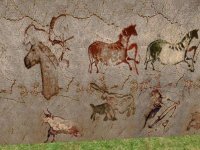Postprocess, rate, upload to social networks, view them, enjoy, like and then delete - all completely automatically, you won't even need to see the images.Yeah just like the days of professional typists which were completely ruined by digital word processing ...
You ain't seen nothing yet ... Only a matter of time until lightroom is built into the camera and will automatically crop, post process and even rate your pictures completely automatically ...
Upvote
0

